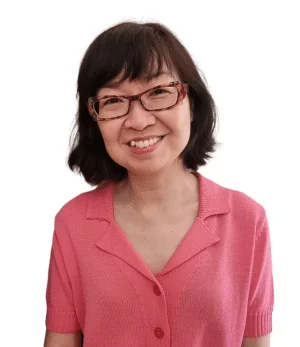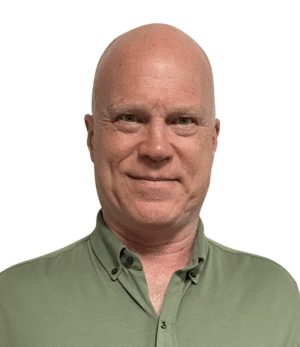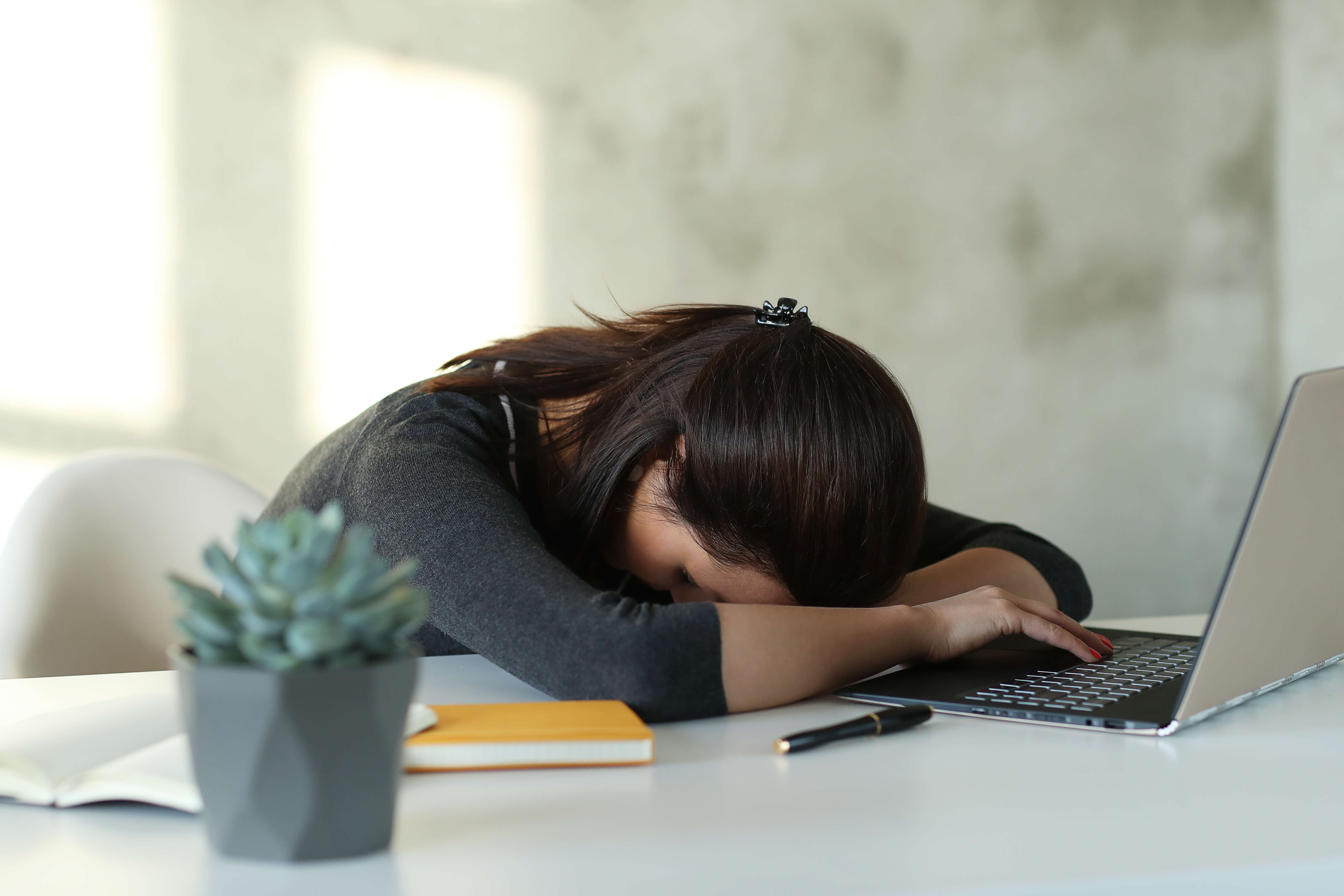Depression Counselling in Singapore
Find a qualified counsellor to talk to today!
At TYHO, we go above and beyond to ensure you receive the highest quality depression counselling in Singapore.
- Singapore-based counselling platform
- 98% of our clients would recommend TYHO
- Strict selection process with 10% acceptance rate for counsellors
- Online & In-person (various locations)
- 70+ vetted & multicultural counsellors in Singapore
- Same day & after hours (incl weekend) sessions available

Depression Counsellors Who Can Help
Have you considered counselling for depression in Singapore? Below are some of our Singaporean counsellors who may be able to assist.

Zoe
Depression Counsellor
Zoe is able to help individuals and couples facing mood instability, loneliness, life transitions, eating concerns or body image, and childhood trauma / ACE.
Starting from S$ 239.80 (w/ GST)

Evonne
Depression Counsellor
Evonne works with adolescents and individuals facing anxiety, stress, depression, LGBTQ-related issues, cultural adjustment, and grief.
Starting from S$ 130.80 (w/GST)

Connie
Depression Counsellor
Connie is an experienced counsellor and works with individuals on a variety of issues such as stress, anxiety, cultural adjustment and LGBTQ issues.
Starting from S$ 130.80 (w/GST)

David
Depression Counsellor
David can help individuals facing anxiety (incl social anxiety), trauma, relationship issues, work-related stress or burnout, and performance coaching.
Starting from S$ 130.80 (w/GST)

Alexandra
Depression Counsellor
Alexandra is a psychologist who draws on her multicultural experiences to support clients facing relationship, workplace, and self-esteem issues.
Starting from S$ 239.80 (w/ GST)

Teerousha
Depression Counsellor
Teerousha can help with relationship issues with parents, intergenerational trauma, narcissism, & suicidal ideation.
Starting from S$ 130.80 (w/GST)

Alva
Depression Counsellor
- TYHO Counselling Centre (City Hall)
Alva helps individuals and couples facing mood instability, trauma, relationship issues, Autism Spectrum Disorder (ASD), and Childhood Trauma / ACE.
Starting from S$ 174.40 (w/GST)

Amanda L
Depression Counsellor
Amanda can help adults with anxiety (incl social anxiety), shame, trauma, work-related stress or burnout, and addictions.
Starting from S$ 130.80 (w/GST)
Depression is a mental health disorder. Two primary and most observable signs of depression are sadness and hopelessness.
Living with depression could affect a person’s academic or work performance, relationships, thoughts, and daily activities like hygiene.
Depression can make day-to-day life more difficult. We urge you to seek help if you relate to the list of symptoms given below.
Counselling for depression can help you reduce or manage the symptoms.
Symptoms of Depression
Common symptoms of depression include:
- Persistent sadness, feeling empty or hopeless
- Loss of interest or joy in activities once enjoyed
- Sudden changes in weight and appetite
- Restlessness or slowed movements and speech
- Fatigue (eg exhaustion) or loss of energy nearly every day
- Feelings of worthlessness, shame, and guilt
- Insomnia or hypersomnia (sleeping too much)
- Constant thoughts of death or suicide or suicide attempts
- Difficulty thinking, concentrating, paying attention, or making decisions

How Is Depression Different From Sadness?
Depression differs from sadness in several ways.
- Sadness is a temporary emotion that usually passes after moving on from a situation or event. Depression is a chronic condition that may last for a long time without depression counselling, medical and social support.
- Sadness could be less intense. Symptoms of depression may be intense to handle alone.
- Sadness may not affect daily life in significant ways. Depression could negatively affect daily functioning, the ability to be happy again, relationships, social activities, and performance.
- Sadness is caused by daily activities and experiences. Depression is the same, however, other mental health conditions or past trauma could also contribute to the symptoms of depression.
Types of Depression
1. Major Depressive Disorder (MDD)
MDD includes sadness, chronic emotional distress, and a lack of interest in activities previously enjoyed.
Symptoms of MDD include a significant change in weight or appetite, sleep issues, and fatigue. Many a time, MDD can also be accompanied by anxiety.
Depression counselling in Singapore can help treat or manage MDD effectively.
2. Persistent Depressive Disorder (PDD)
PDD, or dysthymia, could last for two years or more.
The major sign of PDD includes consistent low moods that may affect daily activities such as brushing, bathing, cooking, or cleaning.
Other common symptoms are low self-esteem, procrastination, stress, shame, guilt, indecisiveness, and struggles with habit change.
3. Bipolar Disorder
Bipolar disorder causes extreme fluctuations in moods (also known as ‘mood disorders’). However, in bipolar type, you may cycle between two distinct mood states: depression and mania.
Similar to other depression disorders, a depressive state is a low mood where a person may feel sad and low and lose interest in activities they used to enjoy.
Symptoms can also include drastic changes in appetite and sleep, low energy levels, feelings of worthlessness and guilt, and thoughts of self-harm or suicide.
Mania is the opposite extreme of depression, where a person may experience high levels of energy, feel extremely happy or irritable, have racing thoughts, and engage in impulsive or risky behaviours.
People with bipolar disorder may also have a reduced need for sleep and exhibit delusions of grandeur.
Grandiosities refer to an exaggerated sense of self-importance, power, or abilities that a person may have.
The delusions can lead to a person believing that they are superior to others or capable of achieving things beyond their abilities.
For example, someone with grandiosity may believe that they are a genius, even if they have average intelligence, or may think that they have special abilities, such as reading minds or communicating with the dead.
These beliefs can be harmful, leading to unrealistic expectations and disappointment when the person realises they cannot live up to their grandiose ideas.
People with bipolar disorder may benefit from appropriate treatment, including online counselling for depression.
4. Postpartum Depression (PPD)
You may have PPD if you have given birth recently. PDD usually begins within the first year after childbirth.
PPD can significantly impact your ability to care for yourself and your child.
Common symptoms of PDD includes chronic sadness, mood swings, worthlessness, and a feeling of uselessness. The symptoms can manifest differently for everyone.
Some people with PPD may also experience anxiety, irritability, and difficulty making decisions. In severe cases, PPD can lead to thoughts of harming oneself or one’s baby.
Try to seek depression counselling if you or somebody you know has symptoms of PPD.

5. Premenstrual Dysphoric Disorder (PMDD)
Menstruators may suffer from PMDD.
PMDD is a severe classification of premenstrual syndrome (PMS). Common signs include mood swings, uncontrollable emotions, cravings, irritability, muscle cramps and sores, and low moods.
Moreover, symptoms such as anger and increased sensitivity to rejection might also manifest because of PMDD. The symptoms usually occur in the week or two before menstruation.
6. Seasonal Affective Disorder (SAD)
You may have SAD if you live far in the north, especially with shorter daylight hours.
SAD is also a type of depression that manifests during specific seasons, most commonly during winter or when there is a lack of natural sunlight.
Research shows that the main reason or cause of SAD may be related to a lack of sunlight.
Lack of sun may cause a drop in serotonin (ie chemical neurotransmitter in the brain) and melatonin levels.
While serotonin regulates our mood, melatonin regulates our sleep patterns. A disruption in both these brain chemicals may cause SAD.
Some of the most common symptoms of SAD include suicidal thoughts, reduced performance in school or work, social withdrawal, mood swings, a need to oversleep, and food cravings.
7. Atypical Depression
Atypical depression may be similar to mood swings; however, this type of depression is chronic and affects a person’s life for months or years.
If you have atypical depression, you may notice a temporary improvement in your mood, especially in response to positive events that may happen in your life.
Since the type is quite uncommon and has unique symptoms, it may be challenging to diagnose. However, TYHO Therapists in Singapore can help you cope with the symptoms through depression therapy.
Common signs of atypical depression include increased appetite or weight gain, excessive sleeping, and a heavy, leaden feeling in the arms and legs.
Related Pages
- How to Find the Right Mental Health Therapist for Depression
- How Therapy in Singapore Can Help with Depression
- 4 Types of Counselling for Depression
- Understanding and Identifying Depression: Symptoms, Signs & Tests
- Supporting and Dating Someone with Depression: A Practical Guide
- Movies about Depression
- Interview with an Expert: Understanding Postpartum Blues
Depression Counselling in Singapore
Note: At TYHO, we use the term ‘Therapists’ for all our mental health professionals.
Depression counselling in Singapore may be helpful if you suspect that you may have depression or other mood disorders.
During depression therapy, psychologists may be ‘talk therapy’ to help you identify, understand, and address symptoms that may be causing a negative impact in your life.
Therapists for depression listen, evaluate progress, and develop a personalised therapeutic plan. The plan may contain clinical impressions, effective coping strategies (eg CBT), and a framework to reach your goals.
At TYHO, we offer both online and in-person sessions for depression therapy in Singapore.
For in-person therapy, you can find the respective address on the Therapist’s profiles.

Benefits of Depression Counselling in Singapore
How effective is depression counselling in Singapore?
Read this section to understand how therapy can help with depression.
At TYHO, Therapists for depression use several approaches, such as solution-focused brief therapy (SFBT), to help you manage your:
- Mood
- Anger
- Hopelessness
- Despair
- Sleep
- Appetite
- Communication skills
Depression therapy works effectively when you follow some key points, including:
- Participating actively during sessions
- Working on your therapy homework
- Sharing honest feedback with your depression counsellor
- Building a healthy relationship with your counsellor
Research shows that a strong therapeutic bond will typically produce positive therapy outcomes!
At TYHO, counselling for depression can help with the following:
- Exploring how your childhood experiences may have caused depression
- Identifying negative and unhelpful thought patterns
- Learning therapeutic tools to cope with mood swings and hopelessness
- Finding joy and happiness in life
- Learning how to express yourself healthily
- Sharing vulnerable feelings in a safe therapeutic environment
- Exploring helpful self-care tools that work best for your issue
- Improving relationships with your partner, friends, and family
- Improving self-confidence and self-acceptance
Techniques and Interventions for Depression
Below are some of the approaches used by TYHO Therapists for depression:
Psychotherapy: Psychotherapy is a long-term approach that focuses on dealing with deeper issues affecting your life. TYHO Therapists may use interventions like cognitive-based therapies to replace your negative thoughts with positive ones.
Mindfulness and meditation: Mindfulness-based interventions can help you become aware of your thoughts. TYHO Therapists may use guided meditation and awareness strategies to reduce and manage your mood swings and negative automatic thoughts (NAT).
Some of the other alternatives you can try alongside therapy include:
Antidepressant medication: SSRIs are usually prescribed to treat depression. These medications increase the level of serotonin and reduce symptoms of depression. Consult your medical doctor to discuss the treatment plan and dosage.
Alternative treatments: Some people may find relief from depression through alternative or complementary therapies, such as acupuncture or herbal supplements. For example, in an acupuncture treatment, fine needles are inserted into specific areas of the body. By doing so, it stimulates the release of endorphins and relaxes the body and mind.
What Do Therapists Do During Depression Counselling?
During counselling for depression, the Therapist will start by making you comfortable and building rapport with you.
You can use this time to ask questions or doubts that you may have about their background or depression therapy.
Topics you may discuss during the initial sessions could include your:
- Personal history
- Medical history
- Family history
- Past and current relationships
- Couple goals
- Therapy goals
- Presenting problems
- Intensity and duration of symptoms
The details you share with your Therapist could help them create a holistic and personalised therapeutic plan.
In the following sessions, your Therapist may inform you about their therapeutic approaches. You can share your feedback and thoughts about anything related to therapy during this stage.
Be assured that if something does not work well for you, your Therapist will modify and adjust the chosen methods based on the feedback.
Throughout counselling, your psychologist or psychotherapist may also recommend mental health resources and tools that you can help you identify and understand depression better. Additionally, educating yourself will also help you identify your triggers outside of therapy sessions.
For example, if you prefer socialising with people with similar experiences, the Therapist might recommend group therapy or activities focusing on your emotional needs.
The frequency of depression counselling in Singapore may depend on the type of therapy approach and your personal preferences.
Depression therapy sessions at TYHO lasts for 60 minutes.

Counselling vs Psychotherapy
At TYHO, we use counselling and psychotherapy interchangeably.
While both the terms are similar, it is important to note that counselling is usually short-term and psychotherapy is a long-term approach.
On the one hand, counselling can help with issues like divorce, anxiety, poor self-image, lack of social skills. These may also overlap with symptoms of depression.
Your counsellor in Singapore may help you develop strategies to:
- Manage your emotions
- Stabilise your mood
- Improve your confidence
- Improve sleep and appetite patterns
On the other hand, psychotherapists in Singapore can help you explore deeper issues that may contribute to your depression.
Psychotherapy may help you:
- Increase your self-awareness
- Improve your mindset, habits, and lifestyle
- Help with major conditions such as Post-Traumatic Stress Disorder (PTSD)
- Provide tools to express your emotions in a healthy way
Most importantly, at TYHO, it is not required to select a specific professional to help you with depression.
Both types of therapy can manage depression. Your choice between counselling and psychotherapy should depend on your needs, Therapist’s recommendations, and goals.
How to Find a Counsellor
At TYHO, you can look for a Therapist for depression based on several factors, such as:
- Issues they can help with
- Therapeutic approaches
- Languages they speak
- Gender
- Mode of therapy (ie in-person, audio or video)
You can shortlist a few professionals based on the above points. Additionally, watch short videos to get to know the Therapist better. Click the video icon beside the Therapist’s profile picture to watch the videos.
If you are already seeking support from other professionals, such as medical doctors or social workers – you can also ask them to provide you with recommendations.
At TYHO, we share all the information you might need to choose a Therapist. Hence, you can also do your own research.
Finding the right expert may take some time. When it comes to depression counselling in Singapore, the relationship between the counsellor and the client is key to the success of therapy.
How Effective is Depression Counselling in Singapore?
Depression counselling is effective to treat and manage symptoms of depression and other mood disorders. This is true for both online and in-person mediums.
Research conducted in 2021 showed that a significant number of participants found online depression therapy to be effective.
Below are some statistics related to the survey, which assessed the benefits of online counselling:
- 65% found online therapy easy to access
- 63% found it convenient and comfortable to seek therapy online
- 41% found online counselling safe
- 37% found online counselling affordable
- 32% preferred online counselling due to privacy and anonymity
Hence, the effectiveness come down to finding the right Therapist for depression, and continuing treatment consistently.
Reach out to us through email at [email protected] or WhatsApp us (click the WhatsApp icon in the bottom right) if you need help selecting a Therapist!
Subscribe to Our Newsletter
Interested in joining our newsletter and staying connected?
Drop your email address below to receive mental health news, latest TYHO articles, and tips delivered to your inbox monthly.

